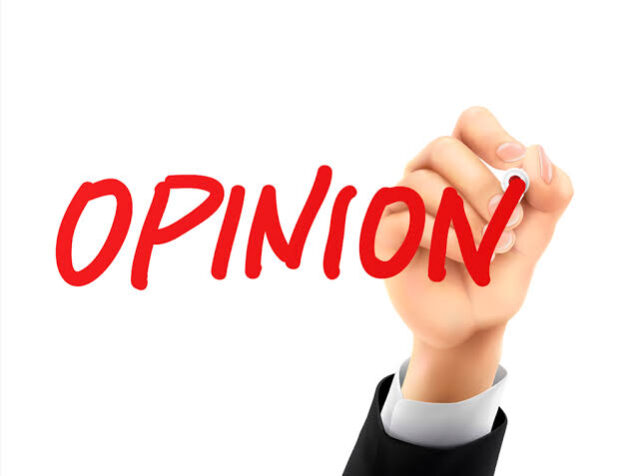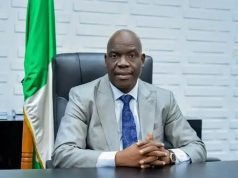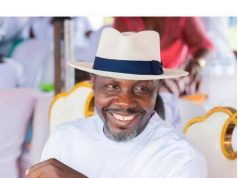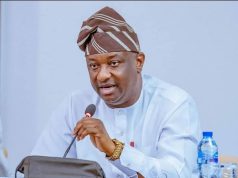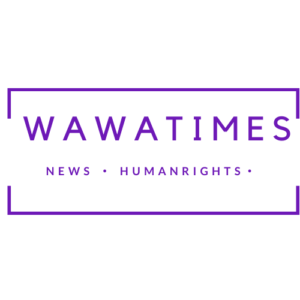By Toby Prince
Truly, from the outset, Nigeria’s President Muhammadu Buhari knew Aso Rock is a hot seat and Nigeria, a very complex country to govern. He has millions of admirers, and enough political adversaries too.
President Buhari is not a leadership neophyte. So, despite the toughness of the game, he has refused to succumb to the fusillade of internal or external agents and forces of destabilization amassed against the nation. The surfeit of insecurities plaguing the country unyieldingly remains a big setback. But Mr President has refused to bulge, much as the anti-state antagonists are also ruthless and relentless.
Yet Buhari’s greatest burden emanates from the veiled external forces whose actions and utterances over time have betrayed sinister motives against the progressive ideals and continued existence of the country as one indivisible entity. So, they are quick to side with non-state actors back home in their crafted evil designs to destabilize Nigeria; but at the same time, portray President Buhari as Nigeria’s worst leader citing indiscernible reasons.
Under a democratic government, there is bound to be a clash of pro and anti-government forces. This posture borrows its strength from the inherent free exercise of citizens’ rights of association and expression which are doctrinal to democratic practice. The visible presence of Non-Governmental organizations (NGOs) in the civil space under the Buhari Presidency reflects state respect for these appendages of democracy.
It is easily observable that on both sides of the coin, the NGOs in Nigeria have indulged in rancour-free exercises of their might in the defence of democracy, partisan interests, rule of law, and good governance. No human institution or system is perfect and so, no one expects the NGOs to be 100 per cent perfect either.
However, what is strange is the adroit defence of what a researcher, Mr Matthew T. Page, termed mainstream NGOs and his outright declassification or hard punches on those he considers “pariah” NGOs, tagged as pro-government, “dubious” or “briefcase entities.”
Mr Page is a non-resident scholar with the Carnegie Endowment for International Peace and some other foreign organizations. He is also a non-resident Fellow with the Centre for Democracy and Development in Abuja. On July 28, 2021, Mr Page published a paper with the title, “Fake Civil Society: The Rise of Pro-Government NGOs in Nigeria.”
He devoted time to throw darts at President Buhari for fueling pro-government NGOs through his appointees, sponsored mainly to choke the genuine civil society space in Nigeria and divert attention from poor leadership policies or other manifestations. “After a fifteen-year lull, pro-government NGO activity has reached new heights since Buhari took office in 2015,” Mr Page asserted.
One is not necessarily frowning at the thrust of the researcher’s paper on operations of NGOs in the country. It is, however, difficult to believe or even vouch for Mr Page’s postulated reasons for the existence of the NGOs he brands as “criminal” enterprises or state-sponsored “cookie-cutter” groups.
It’s ironic that the researcher was unconcerned with the defective nature or operations of NGOs he dubbed as mainstream in the country, but conferred on them the aura of perfection, despite their apparent gaffes most time. But in contrast, he specifically backlashed and tongue-lashed the other civil society groups simply because their views support President Buhari’s administration. That’s a partisan stand already.
Therefore, it is in bad taste for Mr Page to fail to perceive the existence of the mainstream and pro-government NGOs as exciting discourses on the democratic plane with the incongruent positions they take on national issues such as security, good governance, corruption, human rights and the rule of law. It is faulty for the paper to unbending project that pro-government NGOs are satanic on the simplistic basis of registration irregularities or defects; whilst their mainstream counterparts are exemplary messiahs in the views they canvass because they are lawfully registered.
To exculpate his preferred NGOs, Page backed it up with a few lines of hogwash that the “genuine” NGOs eulogize worthy government policies or actions when necessary. It is an implausible argument to claim the interpretation of government’s actions or policies as right or wrong in the sight of Nigerians can only be determined by Mr Page or his clan of so-called credible NGOs.
It is misplaced for Page to reason that President Buhari is such an awfully bad leader to the extent that himself or cronies must hire the services of these “fake” NGOs or briefcase entities to unjustifiably launder their public image, repress human rights abuses, scuttle popular opinions, serve as platforms for syncopating government officials’ illiberal causes for either political or financial gains. Or they are established to attract funds from international donors. Most times, the so-called credible NGOs also indulge in glaring subversive activities to sabotage the Buhari administration or commit deliberate destructive blunders.
But Page poured out his mind bizarrely; “Pro-government NGOs also frequently champion illiberal causes, pushing back against calls for reform, defending state repression, and absolving the government of responsibility for human rights abuses. Yet they also try to appear legitimate by adopting the mannerisms and lexicon of mainstream NGOs. Pro-government NGOs are also, by definition, opaquely funded, most likely by political appointees close to senior officials who seek to generate media attention for their views.”
This piece is hinged on two main aspects of the researcher’s ad hominem on discredited NGOs. Firstly, that pro-government NGOs engages in praise-singing of President Buhari, the Nigerian Military and its Service Chiefs, especially on issues of security. He singled out Chief Philip Agbese, a London-trained lawyer, public affairs analyst and rights activist as the kingpin of the pro-government NGOs in North of Nigeria, together with a handful of others who deploy them as platforms to meaninglessly applaud the performance of the President and the military handling the anti-terrorism operations in the country.
Like even the published paper hinted, Agbese performs this chore because of his abiding faith in the Buhari Presidency and the competence of the Nigerian military to defeat Boko Haram and allied insurgencies in Nigeria. Page and his sponsors must also acknowledge the existence of cyberspace terrorism, which is basically propaganda inclined and also lethal as battlefield terrorism. The activities of Agbese and his other compatriots should rather be seen as patriotism to one’s country in assisting the military to deflate the fake propaganda of cyberspace terrorists against Nigeria.
Nigerians must also know that there is no perfect administration anywhere in the world. But a leader who is meeting the minimal benchmarks in leadership should be supported and emboldened by the ruled to accomplish more. It is what makes leadership what it is and what it should be. Perhaps, Mr Page and his sponsors are unaware of the extent to which Boko Haram and banditry penetrated Nigeria before the Buhari Presidency, so he cannot notice the positive impact now.
Page needs another research to understand the efforts of Buhari and the Nigerian military, in pushing back these tormentors, reclaiming territories and the current stage, where insurgents are held to a standstill by soldiers. No sane Nigerian or anyone else anywhere can conscionably stoop low as to say the former Service Chiefs of the Armed Forces of Nigeria (AFN) has failed to perform credibly in quelling the multiple insurgencies in Nigeria under President Buhari.
That is not to say, President Buhari is a saint and Philip Agbese has never ascribed such status to him either. And it is doubtful if Agbese will ever say President Buhari is a saint. But if there is one national challenge that President Buhari has handled impressively is the fight against insurgencies. Nobody can take that away from Buhari and the likes of Matthew Page must also take time to commend, rather than squabble with NGOs trying to assist the country in battling cyberspace terrorism in wartimes like now.
The fixation of Page’s so-called credible NGOs to also undermine Nigeria most times is undisguised. Amnesty International (AI) for instance, had on several occasions morphed into a mouthpiece of terrorists in Nigeria. They also transcended to a parallel or opposition government in Nigeria, administering its Country Office in Abuja like a daily newspaper, churning out news reports only favourable to the insurgents to dampen the morale of troops.
This is the same AI, which twice, declined appearance before a probe panel to testify or substantiate its bogus claims of human rights violations by the Nigerian Military in the prosecution of counter-insurgency operations in the Northeast. Even if AI considered the composition of the probe panels as lopsided, one expected AI to respect the Nigerian Government by testifying and thereafter, writing and publishing its observations or report on the probe. But it failed disrespectfully.
So, outsiders thinking this posture by AI never angered Nigerians are untruthful to themselves and it is certain, they will never tolerate such an organization in their home countries. Again, let unbiased minds consider the haste with which AI reported killings at Lekki tollgate during the #EndSARS protests and the death toll? In the end, the organization could not even provide evidence of the 10 persons allegedly shot with live bullets by soldiers.
The CNN was later conscripted into this conspiracy by reporting staggering and uncertain figures of casualties in the Lekki incident ranging from the initial 78 to 35 persons, as brutally killed by soldiers. But to this minute none of these organizations has proven any death from the Lekki incident. That’s an unprofessional and mercantile display of journalism practice by CNN. In other climes, CNN would have been sanctioned. But truly, the U.S. State Department’s 2020 Human Rights Report on Nigeria over the October 2020 alleged killings of unarmed #EndSARS protesters by soldiers at the Lekki tollgate, by its unambiguous declaration of lack of evidence vindicated the Nigerian Army.
So, indubitably, the outcome of this research work advertises Matthew T. Page and his sponsors at the Carnegie Endowment for International Peace as a mutation of the external conspirators against the security, peace, stability and unity of Nigeria, like the other identified foreign organizations. It is curious why Page is blinded to the contributions of pro-government NGOs in pairing up with the military in fighting cyberspace terrorism, but unreservedly applauded international organizations whose operations bolster the terrorists’ tormenting Nigeria. Page should revisit the fallouts from the paper by exploring the deliberately excluded angles hinted in this piece or he will be reckoned as one of these paid foreign writers, who has also finished the job very poorly like CNN.
Prince is an editor based in Abuja.

